Maintaining proper oral care may be difficult for patients with dementia. Researchers conducted several studies showing the connection of periodontal disease with Alzheimer’s disease and dementia. To maintain proper oral health, the American Dental Association recommends brushing twice a day, flossing once a day, rinsing after meals, and visiting the dentist every six months for a thorough cleaning and check up. But people with dementia and Alzheimer’s disease often don’t remember these important guidelines. It’s up to caregivers to make sure these special needs patients keep up with dental care.
Assisting patients with dementia also poses difficulties. Patients often resist care because they feel threatened. Nurses at Penn State School of Nursing developed a plan to help caregivers provide oral hygiene to patients with dementia. Managing Oral Hygiene Using Threat Reduction (MOUTh) makes patients feel more comfortable while nurses and caregivers care for their teeth and gums.
The goal of MOUTh is to reduce threat perception. Some of the techniques include: approaching patients at eye level if they are seated, smiling while interacting, pantomiming, and guiding patients to perform their own care by placing the caregiver’s hand over the patient’s hand and leading a demonstration.
Because of proper oral hygiene, the number of patients in nursing homes who still have natural teeth is rising. Many of these patients need assistance with dental hygiene and the MOUTh technique will help caregivers provide care with less resistance.
People can maintain healthy teeth for a lifetime by following the ADA’s guidelines. If your demential or Alzheimer patient needs dental cleaning, contact me, Dr. Corbet Locke, a Waco dentist. I treat patients from Waco, Hewitt, Woodway, and the Central Texas area. For those who fear dental procedures, call my Waco dentist office at (254)776-4888 and ask about sedation dentistry.

